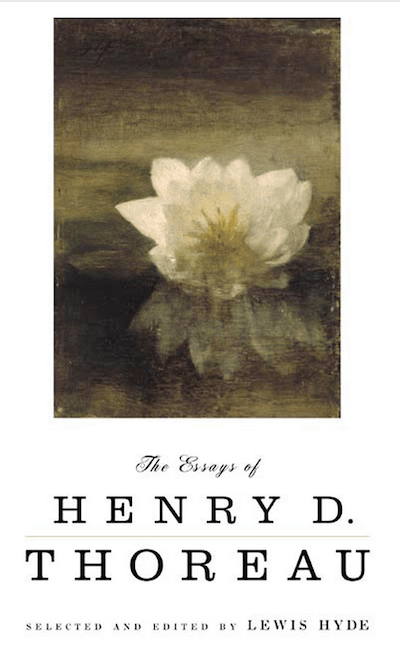The Essays of Henry D Thoreau
Edited by Lewis Hyde
“Hyde’s volume is a well-chosen, handsome collection of essays with a splendid introduction. Everyone will want to use it—it’s a real contribution.” — Robert D. Richardson, author of Henry Thoreau: A Life of the Mind
“This thoughtfully-edited gathering of Thoreau’s essays will surely be of great interest both to Thoreauvians and to readers approaching his work for the first time.” — Lawrence Buell, Harvard University
“Astonishing that so many pages of such great writing (and such wonderful, interesting annotations) can be purchased for so little money. We have needed an inexpensive annotated edition of Thoreau’s best short prose for a very long time, and this clearly fits the bill. Teachers and students, in particular, will find this book extraordinarily useful. The Thoreau material and annotations alone are extraordinarily valuable, but Hyde’s excellent introduction on Thoreau’s ‘Prophetic Excursions’ make this the best deal available for a Thoreau book. Buy it; you’ll be glad you did!” — Bradley Dean, editor of Thoreau’s Wild Fruits and Faith in a Seed
With The Essays of Henry D. Thoreau, Lewis Hyde gathers thirteen of Thoreau’s finest short prose works and, for the first time in 150 years, presents them fully annotated and arranged in the order of their composition. This definitive edition includes Thoreau’s most famous essays, “Civil Disobedience” and “Walking,” along with lesser-known masterpieces such as “Wild Apples,” “The Last Days of John Brown,” and an account of his 1846 journey into the Maine wilderness to climb Mount Katahdin, an essay that ends on a unique note of sublimity and terror in the face of raw nature.
Hyde diverges from the long-standing and dubious editorial custom of separating Thoreau’s politics from his interest in nature, a division that has always obscured the ways in which the two are constantly entwined. “Natural History of Massachusetts” begins not with fish and birds but with a dismissal of the political world, and “Slavery in Massachusetts” ends with a meditation on the water lilies blooming on the Concord River.
Thoreau’s ideal reader was expected to be well versed in Greek and Latin, poetry and travel narrative, and politically engaged in current affairs. Hyde’s detailed annotations clarify many of Thoreau’s references and re-create the contemporary context wherein the nation’s westward expansion was bringing to a head the racial tensions that would result in the Civil War.
